
Josh: G’day out there in podcast land! We’ve got a fantastic guest today. We’ve got Tracey Bissett from Bissett Financial Fitness.
She is your PT coach to financial wealth and we’re going to be talking about entrepreneurial blunders and what to look out for to stay profitable. So Tracey, let’s say hypothetically, I’ve just started my business. I’m going to be a millionaire in 12 months. That’s what we all think, yeah, we’re all going to be a millionaire in 12 months and we’re going to be retired in two years and there’s going to be a Lambo parked out at the front. So what do you think is the first thing we should be looking at to realise that is probably a fallacy?
Tracey: Well, a few things. So the first thing I would want you to look at is to make sure as the owner, you are fully accountable for the financial position of the company, which means you got to look at those numbers. You don’t have to do your own bookkeeping. You don’t have to do your own accounting, but you certainly need to get it done properly and look at those numbers monthly and make sure you know what they’re saying. So when most entrepreneurs go into business they’re super passionate about their product or the service they deliver. And financial matters are not necessarily part of their education. So if that’s not your strength, you want to learn as much as you can, certainly outsource the doing but make sure that you can make decisions based on your numbers and take full responsibility for it.
Josh: I can absolutely resonate with what you’re saying because I started the business 13 years ago and I have an engineering background, which means I love the attention to detail and I love seeing a product finish. I’m not great at marketing or I wasn’t great at marketing the products at that stage. So I would have likened myself to the at that stage, the kidneys garage of mum and dad’s that the cure for cancer that has it sitting on a shelf to then find out something some other cool project to work on. Probably something that lights up.
So that was me and I found that I started looking into books in bits and pieces. Those were few different government publications that came out around GST and tax and the business activity statements and I read all this stuff and it was kind of like reading terms of service with a credit card. It’s quite thick reading if you don’t know what you’re doing. And I read it and then I came to a spot on it, you know what, I can keep reading as much as I want but I’m not going to be able to be as good as the people that are out there that are doing this day in day out the people.
The personal trainers are generally pretty fit people and yourself, I would say if you’re there doing the financial fitness, you’re going to be pretty fit in exactly what you’re doing and pretty experienced. One of the best things that I did was deciding that I didn’t want to wear that hat anymore and giving it off to someone else to wear. But what my question is, sometimes is a bit of a grey area and I know I had this trap, which is you’ve got a bookkeeper, you’ve got an accountant, you can then sometimes have a financial advisor, and then a business coach. And then you’ve got yourself with your own ideas and it becomes a bit blurry as to the lines as to whose responsibility is what. I know some people will say all my receipts are in a shoebox in the back there I give them to the bookkeeper once a month, and it’s up to them with whatever happens next, I just keep doing the voodoo that I do. So how do you make sure that there are a clear cut and defined line? Or is that something that the entrepreneur needs to learn or they need to define and then pass out to everyone else?
IT doesn’t have to be expensive. If you’re starting a business and need reliable IT support and services, fill out the form to learn more about $1 IT services.
Tracey: Yeah, I would say for the owner, they should be defining the accountabilities.
Bookkeeping is pretty much data entry if your bookkeeper isn’t overly knowledgeable, necessarily, but all of the things around accounting you want your accountant to check out the chart of accounts that your bookkeepers filling in the numbers into. So you would rely on them. I don’t think a Chart of Accounts is necessarily anything of business owner necessarily needs to know. But the overall responsibility lies with them. And so when I’m working with clients, sometimes I find that because the knowledge may not be there, then there’s a little bit of intimidation to even ask questions. I don’t even know where to start when I’m going to talk to my bookkeeper or my accountant. So how could I even tell them what to do when I 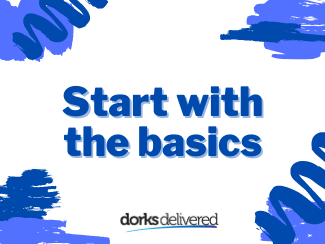
So I encourage people to be curious, to be open, ask lots of questions, you get answers that help you understand and just recognise that they’re there to do their role. They should help inform you about what they’re supposed to be doing and what they would expect you to be doing. And if you’re not seeing the numbers on at least a monthly basis, you need to speak up and say, you know, I need to see those to be able to make good decisions and run my company. So be curious, be open, don’t be shy. A lot of people tend to not want to ask the questions because they feel like they’re going to ask them wrong. And that’s okay, you’re learning. And the only way you can learn more is by finding out what you know and what you don’t know. And finding better ways to ask questions.
Josh: Well, you don’t know what you don’t know until you know, you know. So that’s it. I remember back in school, I was sitting in class, long story, but I missed out on a month of schooling. And I came back and everything that we’re talking about in maths had changed. And they weren’t talking about the gonna just use very simple terms, they weren’t talking about plus ones and plus twos that though we’re now talking about parabolas and matrices, and I’m going, okay, this became very different. I don’t want to put my hand up and look stupid in front of everyone. So to sit there and feel stupid and not do as well in the class is what I could have. And that’s something that just hearing what you said that was very soothing and going, okay, it’s okay to there are no stupid questions. It’s okay to ask a question. It’s okay to advance your knowledge. Don’t feel like you’re a lesser person by not knowing. It’s natural to be very good at some things and via walking the path of learning the others. So, yeah, it’s refreshing. And as I said, soothing hearing that and something that people can focus on quite heavily and they get a new idea.
If you need assistance with your automation, talk to a dork. Fill out the form below to book a free one-hour consultation.
You get a new idea and you go, okay, I want to invest my time and energy into this, this is going to be amazing. It’s going to be life-changing for everyone. And how do you do a SWOT analysis on that new idea, taking into account the numbers and making sure that you’re not investing too much? And I guess it comes down to like risks and all sorts, and where your risk profile sits with you, how do you make sure that you’re not investing too much in a new idea that isn’t proven? If you’ve already got a business that’s up and running? Or you’re looking to start a business?
Tracey: Well, that’s a great question. And certainly, it’s easy to get distracted by new ideas that may build on what you’ve already got and may actually detract from what you have. And so, I think you want to do a quick analysis in a relatively short amount of time to figure out if it’s worth pursuing farther. As you mentioned, there’s a lot of elements you are going to look at because you are going to do this SWOT analysis. So maybe there’s someone in your company who knows the market really well, they’ve got to research that.
While they’re researching what you’re going to offer for your product or service. They should be checking into what are the competitors charging for that because that’s already Really important data point that you need to know. Then you need to find out what is it going to cost me to deliver this product or service? And then is there other overhead I might need to bring on? Am I going to need more team to do this? Or am I going to need more equipment? Am I going to need other tools to be able to do this? And so, then you can compare what the value is that you’re bringing to the market, what the price you think you can sell it for? It’s okay to be a higher-priced than your competitors if you’re offering more value, there’s nothing wrong with that, and you need to be confident enough to charge that price. But when you see what the price is against how much it costs you, is it going to be profitable?
Josh: Yes, that’s a big thing I see. You’d see it even more. A lot of people have a cheap focus, people feel that their clients are going to be money-driven and look at the dollar reduce, as I would call them, rather than focusing on why the competitors charging more. Have they done more research than then potentially you have when you come up with an idea?
Tracey: Absolutely. And we form views about money when we are little kids. So however we felt in our family, it stays with us. And we can certainly change the way we feel about money. But if you always felt like you needed to kind of ask people or kind of play with people to get money, you’re probably going to feel like that when you put your product out in the market, and you may not charge as much as you should. Because if you know you’re offering something valuable, you should be asking for the right price. But making sure that you are going to make money on your products and services, depending on what you’re selling, you may need to hit a certain volume of it before you become profitable. And that’s part of your analysis too. Because if it’s going to take you three months, but all of a sudden, if you can hit to that point, all of a sudden then the cash is going to pour in.
IT doesn’t have to be expensive. If you’re starting a business and need reliable IT support and services, fill out the form to learn more about $1 IT services.
If you can weather that three month period, and it won’t harm your existing business, then that sounds like a good thing.
But if you’re never going to make money on it, maybe you need to pivot the idea, and there’s no shame in rejigging an idea. Maybe turning to a different customer base, maybe adding or modifying the product or service to make it profitable, because you can only cost cut to a certain extent, at the end of the day, it’s got to be the sales that actually make it profitable.
Josh: That’s a big thing that you’ve just said. So a couple of things I’d like to touch on there like sales. Sales are its own thing. And that was something I was very scared of when I first started, I’m not a salesperson. sounds gross. I don’t want to be a salesperson, I want to be a great business person. And if I have a great product and a great business, then people will work with me. And that statement is true to an extent.
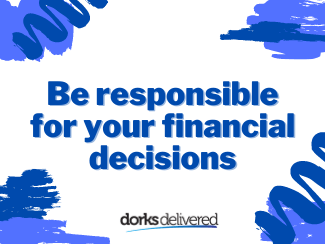
Josh: That’s exactly right. And then you need to have an understanding that if it’s going to be around people to know about you, then there has to be a path that you’re following that is on a linear growth path because it’s not going to be an exponential growth if you’re not going to be marketing and going out there and sort of with the megaphone spruiking the brand and the promise that you have there and your ideals. A big thing that I’ve seen people sort of discount for things without even really looking at why they’re discounting or what the reason is, or the motive is they’re just like, I’ll give you money off if you work with me. And that can sometimes be the wrong step into the relationship. What another sort of dos and do not have you seen people focus on?
Tracey: I’ve seen people setting their price based on what they think without doing any research. So you do need to validate it in the market. And as I said, if you are offering something of more value, if you have fewer clients, but they’re paying you more, that’s just as effective as a cheaper thing with more clients. It all starts with what does the client need? It has to always be about what do they need. Because if you’ve got something of value, then they’re going to want it.
As you said, you’ve got to market it. And you’ve got to speak in a language that resonates with them, not why you think it’s great, but how it helps them and solves their problems is really key. And what I find though, is a lot of entrepreneurs, they get so excited about their product or service, but they don’t take those moments to look at the cost of delivery, and so they end up losing money on everything that they sell, and then that can impact everything else about the business because then you’re tight on cash flow if you’re running at a loss. You may have struggles paying your government remittances, you’re going to have struggles meeting payroll. As an owner, you’re probably not going to get a consistent paycheck if one at all. And then you may be letting down people in your family because you’re not able to give them the things that you promised them you were going to do when you started your own business and we’re going to make a million dollars. So it all kind of ties together and it leads to lots of stress, lots of anxiety, lots of tension, and then it really just distracts and detracts the owner from doing what they do best, which was why they started the business in the first place. So we don’t want money to be an impediment to them achieving their goals.
Do you need help with backup and recovery? Fill out the form to get in touch with a Dork.
Josh: Well, I think you’ve touched on a few different things there and that is one of them I find like what do you think when it comes down to people say you’ve got to add value, you got to add value, and this is a big thing that’s turned around a lot.
Everyone’s like, I add value. 15 years, 20 years ago, when you’d have a product, you’d have a look at a product, you’d add a margin. And then that would be the product. Now people are talking a lot about adding value, which as far as I can understand, my understanding of that is you package multiple products that can sometimes be intangible appear as if there’s something that is going to be helping someone out is a value add.
I guess now I’m using the term value add, you should never describe something with that word, should you? That’s a big no-no. You have all these different items that are intangible bulk items that you can give to lots of people that people see and go, Okay, this is going to be a better reason to work with you. It could be something as simple as KFC have an app and if you’ve been using it, it gives you a little discount or something like that. Yeah, okay, cool. I’ve got a that’s, I guess, a value add, but it’s giving you a discount for using the app multiple times. They’re not using the discount just because they’ve gone, okay, you’ve become a more loyal customer, he’s a reason to continue purchasing the chicken or whatever from the meals from them.
So I guess my question is value versus margin, how do you make sure that you determine the appropriate value. And this is something that I think is huge with the Cloud Computing software at the moment. Everyone’s moving there, the application that would have charged $100 for upfront or $1,000, for upfront, into a model where they’re charging $10 a month or $100 a month. And so they’re seeing you’re getting these updates. But you’re never-ending this suffer. And there’s a whole bunch more can control of what you can do with this software. So how do you determine value versus margin?
Tracey: I view it from the perspective that you’re looking at. So the value has to be perceived by the client. So you can tell someone it’s all value-added, and it has this, this and this, but if they don’t see that, that doesn’t hold any value. So especially like what you’re talking with the software like you do have to figure out how much does it cost us to make this in the first place? What were all our sunk costs for R&D? How many times will we have to sell this stuff to break even and then to make money? And at what point does it become feasible? And can we get to that many subscribers, because a business is very valuable from a business standpoint when it has regular recurring revenue?
IT doesn’t have to be expensive. If you’re starting a business and need reliable IT support and services, fill out the form to learn more about $1 IT services.
Certainly, it makes it more saleable. It makes it a good acquisition target in the future if that’s something that people are interested in.
But I really start with the basics, how much does it cost to make this and something like software, there’s probably years of development that have potentially gone into it that gotta be recouped. So you’ve got to figure out from the numbers, what does that look like? And then it’s from the client perspective, what’s the value? And that value piece is kind of the profit, I would say that you’re building into what you’re charging. But make sure if I’m charging $10 a month, how many subscribers Am I going to need to be profitable? And what happens if I don’t? Is this still a good endeavour? Then obviously, I would think because everybody’s gone this way. They’ve found a way to 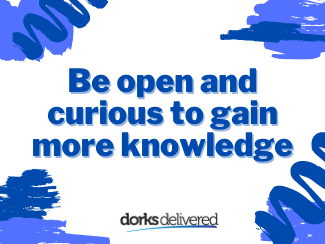
Josh: That makes sense. And you bought up a couple of points earlier when we’re talking about having this new idea and it does come down for a business owner. So it’s not all about you. It’s about how does that impact your family? How does it impact your mental health, which is a big thing, making sure that you are staying mentally healthy? When you go on these crazy endeavours and I’m wanting to say comfortably there’s been periods of time where I was pulling 100, 120-hour weeks and I did that for about six weeks before I realised that something’s going to break. And we had to remove a bunch of clients because of the way we’re running the business.
It was not going to be able to be something that we didn’t see it growing the way that it did. Then I didn’t have the time to train anyone else. So I was sitting there in this the golden shackles, as I call them, the jail that I created for myself, and I had to make the decision to cut a whole bunch of clients out, the old 80/20 rule. The clients that were noisier even though profitable, they were noisier clients that we went can’t keep with them. So mental health is a very important part of all this and your debt versus profit can play a big role in that with your family and with your mental health some businesses. You see them all the time, these huge businesses like Uber that sit there running in debt for year on year and Tesla running in debt. The first profit obviously you always want to be trying to run a profitable business but that can sometimes mean that you’re running a business that you’re not really taking any risks or you have a very low-risk profile and that could mean that your growth isn’t as quick but it also means your full might not be as quick or am I just talking out my ass? What are you what are your thoughts on having a business that is running profitably or is running with debt? Or when’s the right time to consider increasing that overdraft or changing around your position to be pulling $100,000 or a million-dollar equipment loan to buy something that you think is going to work? How do you wage that? Or how do you work that out? How do you make sure you’re making the right financial decision?
IT is indispensable but it shouldn’t cost hundreds of dollars. Fill out the form to learn more about our budget-friendly on-demand IT solutions.
Tracey: So a couple of things. First off, it totally starts with a business plan, which includes a very detailed and well thought out forecast.
So it’s okay if the plan is to lose money for three years, and raise enough money initially or have it to fund three years if that’s what it’s going to take because some ideas are going to take longer, you’re going to need the scale and the mass to make it profitable. So start with a well thought out business plan. I know a lot of business owners don’t necessarily like to start there because they’re enthusiastic and want to just jump into the business. But you need to know what those expectations will be. And then secure enough money, whether it’s your own resources, whether you need to go to an investor, banks are kind of challenging for startups without a track record. It’s really hard though probably get you to borrow personally. You can put the money into the business. So start with a plan, know realistically whatever comes up with tack on probably at least another six months, eight months because things don’t unfold as you expect. So know that things take longer, they cost more.
Josh: Absolutely. I have a rule of 10 for myself, whatever I think it is, I times it by 10.
Tracey: Yeah, well, if it’s been your experience and then does it, it’s the way it works for you.
Josh: It makes it at least I’m not getting annoyed that it’s not being achieved in the right amount of time.
Tracey: Yeah. The second thing I would say is absolutely critical as soon as possible to establish credit in the company’s name. So even though you may be getting the money right away through personal means, or because you put your personal guarantee, get those credit cards, set up overdrafts, even if they’re very small amounts, set up lines with suppliers where you can start building up the credit because as the company grows, you want to be able to grow the company that the credit that the company has. And you can’t do that if you go later and try to get a big amount of credit when they don’t know you and there’s been no track record for the company. So those two things are really key.
Then based on your forecast, when are you going to make a profit? If you’re tracking according to your milestones, so if you thought maybe in a fictional example, maybe it’s going to be nine months, we’re going to start being profitable. If things are all trending that way, and the profit starts coming in, then you have some decisions to make with the profit. And we’re going to take that out, am I going to give it to myself as the owner, or am I going to reinvest in the business? Certainly, if you’re going to be looking for financing, you’ve got some more growth plans and growth is super hungry and the fuel that it needs to eat is cash. So for you to grow your business, it requires that reinvestment of money.
IT doesn’t have to be expensive. If you’re starting a business and need reliable IT support and services, fill out the form to learn more about $1 IT services.
Bankers want to see you being in money as well. They don’t want to be the only one who’s injecting into this venture.
So you will be profitable, you can then make your investment and it’s appropriate to take on debt at the levels that you can payback. So if you’re taking on debt that needs to be repaid over a couple of years, lenders are going to be looking for a track record where you showed that you had the capacity, that capability to pay it back. So be thinking about it in those terms. If you aren’t going to be taking a higher risk proposition, you probably do need to look for some kind of investor who’s willing to take that risk of the potential loss. Because banks aren’t going to take that risk with you. That’s just not what they’re set up for. Their shareholders don’t tolerate that. That’s not their mandate.
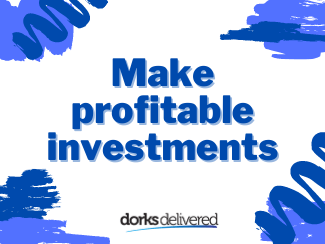
But I wanted to sort of touch on buffer incomes. So when you’re running it in debt versus profit, as you said, you obviously have to have some sort of a rainy day fund sitting there. And if you’re doing that, what would you say is a sensible amount to have or get part and part of the same question? If you’re starting a new business and you’re looking to go out on your own and you think this is gonna be great. I’m going to quit my day job so that I have 40 hours a week to spend towards this business. I found that’s a fallacy, probably going to be spending 40 hours additionally to the 40 hours you’re spending with someone else. You’re probably gonna be spending 80 hours a week for quite a while to be able to have the wheels start to move. The train takes a long time to gain the energy to get the momentum it requires to move from place A to place B. So what do you think the buffer income should be? And what are the catalysts or the aha moments that you see when you go okay, it’s time to get rid of that security net that you have of your employee?
Do you want to learn more about technology for business? Fill out the form below to get a callback.
Tracey: Yeah, the buffer, that reserve you’re going to have whether you’re starting up or you’re going into a kind of an uncertain period, it really depends on what your run rate is.
So how much are your expenses every month? And you need to know that number. If you have a big team and you know, you’ve got to make payroll, you at least want to have three months, maybe six months buffer so that you know you can pay people and keep things going in the organisation.
So really depends on the business, some are more intensive in terms of the amount of money you got to pay out every month. If you’re doing a lot of stuff on your own, you can get by with less. So building that business plan at the beginning, doing that forecast will quantify that number for you. I think I can totally agree with what you were saying. I mean, I was a banker for a long time. And I used to think I worked a lot. My last job before I left the bank, I was doing 60 to 80 hours a week in the office. And then I thought, oh, I’ll just work for myself and I’ll have more work-life balance. No, that’s not how it works. So you’re building, you’re building and you’ve got to learn all these things you don’t know how to do.
I don’t think entrepreneurship is necessarily for everyone. So what you were saying like how you started it on the side and you had your job. I think that’s a good way. Number one, you’ve got to test your idea. Make sure it’s something that the market wants, not just something you think is fun, that you want to bring into the world because you got to make sure you can actually make money from your idea. That’s the goal. So make sure that your ideas sound. Make sure you actually like being an entrepreneur. So by testing it on the side gives you that, because if you can’t sleep at night, because you’re worried about your next sale, maybe you do need to have a full-time job because that allows you to sleep at night and have less anxiety. But if the thrill of it and chasing down the sales and all the marketing and all the moving pieces gets you excited, and it’s going well, you’re going to know where that trigger point is. Keeping in mind, whatever that amount you figured out initially.
Do I have that? Do I want to maybe have a little bit of extra because certainly everybody who gets into business sees that things cost more, takes longer? Initial expectations usually aren’t enough. So make sure it’s for you and then build up the money before you leave that full-time job. And just on the point, you mentioned about getting the house, certainly, you want to make sure you pay yourself regularly on a salary to some level from your organisation. When you are running your own business, we’ve even seen it now with government support here in Canada with the pandemic. A lot of entrepreneurs were shut out because they did not pay themselves a salary. So you’re having trouble personally when you go to try to prove your capacity to repay a mortgage to the bank if you’re not getting a steady income because they don’t care about the cash inflow from the business. If it’s not documented, and they can’t see the history, they’re not going to be that likely to give you those personal loans as well. And so you’ve got to think about the business and the personal picture together.
IT doesn’t have to be expensive. If you’re starting a business and need reliable IT support and services, fill out the form to learn more about $1 IT services.
Josh: I learnt that the hard way as I said, it delayed the purchase of the house by a couple of years, and had to be a not a top tier lender, I guess, I don’t know, a B-class lender or something like that. And it worked. It was fine. And then a year later, we just refinance.
Tracey: But you would pay more, you would have paid more in interest being with the B-lender.
Josh: I did. I did. 2% more or so which is quite a sizable amount really. But I thought I’ll get gets me in a place and gets me happy and set up and have a bit of solidity. But the income and that the aha moment for me was I looked at what I was earning in my day to day job, and I thought, okay, I’m spending a lot of time on the side hustle and it took two and a half three years before I switched off the 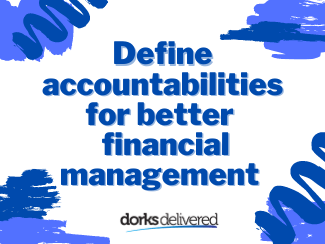
There’s a big airline in Australia. Ansett Australia was huge. And then some mismanagement led to it disappearing and then short of it, it was purchased by Richard Branson turned into Virgin Australia now and now it’s going underneath a similar sort of overhaul, it’s gone under administration. And they’ve obviously got some pretty, pretty smart cookies there that have still fallen by this pandemic. I guess you can’t always look out for everything. But there are certain things you can look out for. When forecasts go wrong or when you need to pivot your forecast because of external events, how do you go about doing that? Making sure you’re getting the right advice and you’re not stressing out and putting your head in the sand like an ostrich as it would be?
Tracey: Yeah, absolutely. And so couple things, you don’t want to be highly leveraged all the time, because that gives you the flexibility to potentially take on more debt in the future if you need to, for some unforeseen situation. Building up your cash reserves, so that you do have something. And then taking a hard look at your business and seeing just what I offer right now is that still going to be viable in the new normal that I think is coming? If it’s not taking action, maybe you start doing some tests of some new products or service and see how people reacting to it. But don’t just wait.
If you need assistance with your automation, talk to a dork. Fill out the form below to book a free one-hour consultation.
If you wait for a long time, you may be then out of business. And in my experience, as a banker, I’ve seen businesses go under in as quick as 90 days, because they weren’t getting the cash flow. They might have been having sales on paper, so great sales, but if nobody pays you, it doesn’t really matter you’re going to be done for and if you’re already maxed out on debt, there’s limited room to refinance and the company limited ability to go out and get more debt.
So I’ve actually been talking to some entrepreneurs now saying, if you weren’t able to do well, or make money when things were going well, should you really take on more debt right now? Because how are you going to do your business better when we’re in a more challenging time? So sometimes you have to ask yourself the hard questions. If you’re uncomfortable doing it, maybe you’re going to have that talk with your accountant and get them to get back to you.
But being an entrepreneur means you do need to ask yourself hard questions so that you can, number one, take care of yourself because you don’t want to be so stressed that you get ill and then have a heart attack or blood pressures through the roof. You want to make sure that you’re there and you’re continuing on, whether it’s this company or it’s another company, you can’t be so tied to the one organisation or the one product that you lose sight of making plans and doing the right thing at the moment. And certainly, this is unprecedented. And nobody could have forecast the wide-reaching effects. But from the crisis in 2008, we know that companies that had fewer data at that time who had cash reserves, they were able to survive and persist. And then get out of it okay, others folded because they just didn’t have many options.
Josh: To continue on what you’re saying there, take all emotion out of it. It’s your business and you’ve been putting all this stuff into it. You got to look at very analytically, and get all emotion removed. I’d say that’d be fair to say?
Tracey: Yeah, absolutely. And it’s really hard. I mean, it’s your baby, your baby. You created it from nothing, but sometimes you need to say bye to your baby. And if you can’t do it, you need to at least have the knowledge of how you feel. And no one goes out and talk to people you trust and respect that you feel have good judgment and ask them for their unbiased opinion. Maybe it’s in the form of market research, you’ve got to test some things with your clients, hey, in three months, do you think you’ll still be interested in this kind of thing, or you won’t have any disposable income to buy it anymore. So get a fax, and get other people to help you. The other thing you were talking about mental health with entrepreneurs, it can be very lonely to be running a business on your own as the one who has to make all the decisions. So it’s super important to surround yourself with peers, with mentors, with coaches, people who are farther along than you in the journey, people who are in the same place so that you have a support system to get the help when you need it. Because you can’t solve every problem alone.
IT doesn’t have to be expensive. If you’re starting a business and need reliable IT support and services, fill out the form to learn more about $1 IT services.
Josh: I’m going to say exactly that, eagles fly with eagles and you’re the product of the five people that you’re the closest with that surround you.
So it’s very important to make sure you do that, and that’ll allow for stratospheric growth.
Well, Tracey, we’ve covered a lot of ground here on different blunders that new entrepreneurs can make and what to look out for to stay profitable. And I’ve really enjoyed going through this with you. Is there anything else that you think we should cover off before we get to the end of this episode?
Tracey: One thing I want to highlight is that a lot of times when I start working with entrepreneurs, they tell me they don’t know anything about money. They don’t know anything about their financial statements. And they really don’t know about the numbers. And I learned very quickly that that is not true, and they learn that too because if you’ve been in business for any length of time, you actually 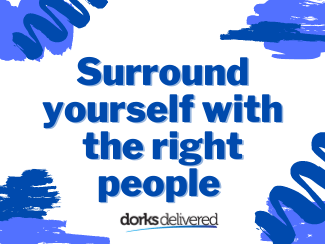
The last thing I would say is if anyone’s been inspired today, I have a free gift for your audience so they can keep going on their financial fitness journey. So it’s money needing agenda, which you can download at cashcoach.biz, and that will help you get focused on getting started and taking that next step. So you can get your money needing agenda, cashcoach.biz.
Josh: Well make sure to check a couple of links there in the description as well as in our blog articles for everyone else to jump on to that fantastic offer. And I’ve got to say I love the idea of financial fitness, the way that you position yourself as a personal trainer for finance because it’s very clever. It’s something that I know myself, you, everyone does this, you are going to lose some weight. And then you go out there and you go, I’m gonna be Arnold Schwarzenegger in six weeks, I’m going to have that six weeks abs or whatever. And it’s two weeks and you’re like, I can’t do this, this is terrible. This isn’t me at all. And it’s because you have these huge goals, you think this is gonna be great, I’m all fit already. And then it’s just about batting small bits off until you realise if you’ve already been as you sort of said there, if you’ve already been running a business for a while you already have that financial information that’s required. It just you might not be calling it gross, net and profit. And anything else you might be calling it different things and transferring it in different ways and not calling it drawings and whatever else. But it could be and I might not be calling it the right thing. But it’s about knowing that you just have to have a change of language and have someone to hold your hand there and over a course of time, get those financial abs.
Tracey: Yeah, absolutely. Build your financial acumen and your confidence in yourself. So you do it one day at a time you consult with people who can help you but it’s just how what can I learn today that’s going to help me run my business better so I can get to the goals I’ve set.
Josh: Cool. Well, everyone jumped on to that office. It’s fantastic to offer and Tracey, it’s been lovely speaking with you. And if there is anyone out there in podcast land, please jump across to iTunes, leave us a review, give us some love. Give us some feedback and everyone’s stay good and stay healthy.
[module-379]





























